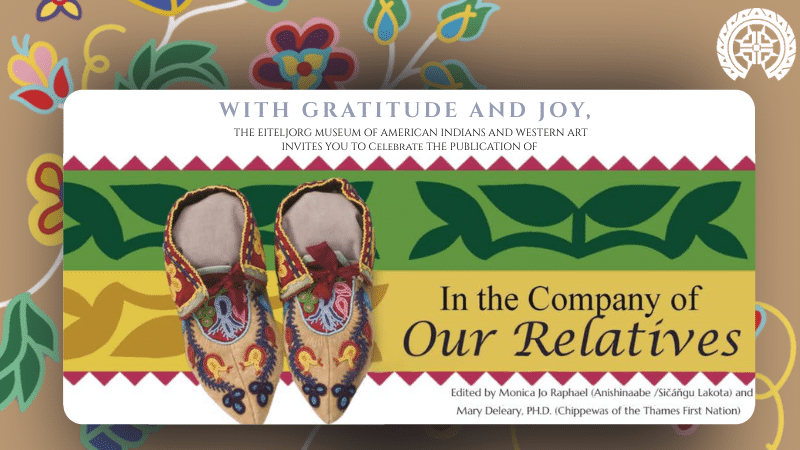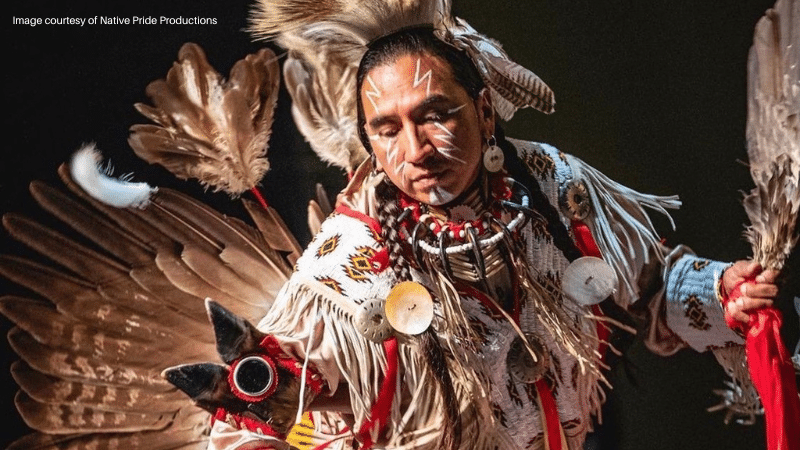Eiteljorg Insider: 5 Questions with Dr. Laura J. Arata
By: Brooke Sullivan, marketing and communications intern

Dr. Laura J. Arata, author of Race and the Wild West: Sarah Bickford, the Montana Vigilantes, and the Tourism of Decline, 1870-1930, will discuss her book at the Eiteljorg during the Gund Western Lecture Series at 6 p.m. Thursday April 14. Dr. Arata, a public historian and professor, specializes in the North American West with an emphasis on race, gender and ethnicity in the late 19th and early 20th century.
Her book Race and the Wild West explores the life of the nation’s first African American female public utilities owner and heritage-tourism entrepreneur, Sarah Bickford. The book won the 2021 Western Writers of America Spur Award for Best First Book, and the 2021 Western Association of Women’s Historians Gita Chaudhuri Prize. In anticipation of the lecture, Dr. Arata sat down with the Eiteljorg to answer a few questions about her book and what she hopes people will take away from the lecture.
- What inspired you to research and write a book about Sarah Blair Bickford?
 “I came across Sarah’s story the first time I visited Virginia City when I wandered into Hangman’s Building. It earned that name by serving as an infamous quintuple lynching site in 1864. Hanging in the building was a sheet of paper explaining that an African American woman named Sarah Bickford once owned this building. So the lynching was well-known, and Sarah Bickford owning the water company was well-known, but none of the interpretations drew connections between those two stories. The first time someone asked if I thought I could gather enough information to write a whole book about Sarah, I vividly recall replying, “She’s a Black woman promoting tourism at the site of a lynching…there has to be a story there!” And there was – I have always felt a profound sense of gratitude that my path intersected with her story. I have been able to do things and go places I could never have imagined, all because I had the chance to learn about Sarah and share her story with others.”
“I came across Sarah’s story the first time I visited Virginia City when I wandered into Hangman’s Building. It earned that name by serving as an infamous quintuple lynching site in 1864. Hanging in the building was a sheet of paper explaining that an African American woman named Sarah Bickford once owned this building. So the lynching was well-known, and Sarah Bickford owning the water company was well-known, but none of the interpretations drew connections between those two stories. The first time someone asked if I thought I could gather enough information to write a whole book about Sarah, I vividly recall replying, “She’s a Black woman promoting tourism at the site of a lynching…there has to be a story there!” And there was – I have always felt a profound sense of gratitude that my path intersected with her story. I have been able to do things and go places I could never have imagined, all because I had the chance to learn about Sarah and share her story with others.”
- Broadly speaking, what do you find most interesting about the American West?
“I grew up in California, and my grandfather owned a ranch where my family lived. My childhood was somewhat unconventional in the sense that we were still, in many ways, living like it was an earlier time – we didn’t have heat (other than a wood stove); we didn’t have television; we raised a lot of our food. When I was young, my grandfather was still farming fields with teams of draft horses. It maybe wouldn’t have seemed strange if we weren’t less than an hour away from Silicon Valley and witnessing the tech revolution as it unfolded in that area. My sense of the West has always been very complex, and I am fascinated by how Western lore continues to hold such incredible power, for myself included. My affinity for the idea of the “Wild West” was an entry point from which I fell in love with Virginia City, Montana, and without that, I’m not sure I would have been quite so struck by Sarah Bickford’s story and how it complicated the “truth” of that place. When it comes to the West, much of what we think of as “history” is often actually “legend” – Sarah’s life beautifully demonstrates how those things intertwine.”
- Why do you think it’s important to expand the view people have of the American West and to share untold diverse stories and experiences?
“We can’t honor the past that we aren’t aware of, and while the standard stories of the Wild West are fascinating and resonant for many reasons, they can limit us. The West is this incredible meeting ground where diverse people crash together in search of the opportunities that are supposed to be available there; not everyone finds them, and not everyone makes it into the history books in the same way or at the same time. Speaking from my own experience, there’s a real fear that if we acknowledge all these complications, we risk losing the supposedly characteristic history that makes the West unique. But learning about history is always a process of revealing ways that the “truth” is dynamic and adds so much depth and rich detail to stories we think we know!”
- What is your favorite story from Sarah Blair Bickford’s life?
“In 1898, Sarah helped pull off what was probably the greatest hoax in Virginia City’s history. Another resident, annoyed at some acquaintances at a local saloon, hatched a plan for revenge. This resident acquired a pouch of gold dust, rode back into town with it, and returned to the saloon, casually mentioning to some patrons that it came from “Moran Creek.” Word spread immediately, and the town emptied out within hours as everyone rushed to stake a claim. But there wasn’t any gold at Moran Creek, so they all trudged back to Virginia City pretty embarrassed about the whole thing… except for Sarah, who was in on the joke because she was the source of the gold dust. The fact that no one talked about this story for over a century kind of cements for me that it was probably true.”
- What would you like to focus on or write about next, and do you have another book in the works?
“I’m working on a few different things. One of Sarah Bickford’s daughters ended up marrying a man and settling in Oklahoma, not far from where I live now, and I’m working on some research about her life. I’m working on a different piece about an African Methodist Episcopal Church in Tulsa. I’ve also been doing a lot of work on a historic structure here in Stillwater, Oklahoma, which was the all-Black school for many decades and is in danger of being demolished. I’m working on a memoir too. One of the most unexpected things I learned from researching Sarah Bickford’s story was how much it revealed some of the questions I’d never thought to ask about my own life. Growing up, I was taught to think of myself as pretty nondescript white, Protestant, and “American” – because, as it turned out, my Italian-Portuguese Catholic grandfather had taken great pains to make sure that was all I knew.”
Bonus Question: The Eiteljorg Museum’s annual Gund Western Lecture Series exists to give the public an opportunity to hear from scholars of the American West about their work and research. What would you like attendees to take away from your upcoming lecture?
“The West is big enough for every idea that we have of it – and more. Sharing the truth in that statement is a personal mission, because I can speak to how it changed my life in profound ways. As a public historian, I think it’s crucial to make stories that illuminate history accessible to others, even when that history is uncomfortable … I hope telling the story of Sarah inspires others to dive a little bit deeper into whatever history resonates with them – you never know where it will lead you.”
Responses have been edited for length and clarity.
Join us at the Eiteljorg at 6 p.m. April 14 for the Gund Western Lecture Series, featuring Dr. Laura Arata. Cost: Museum members are $15, non-members are $25. Click here to purchase a ticket.











